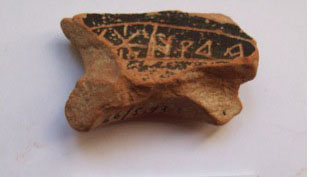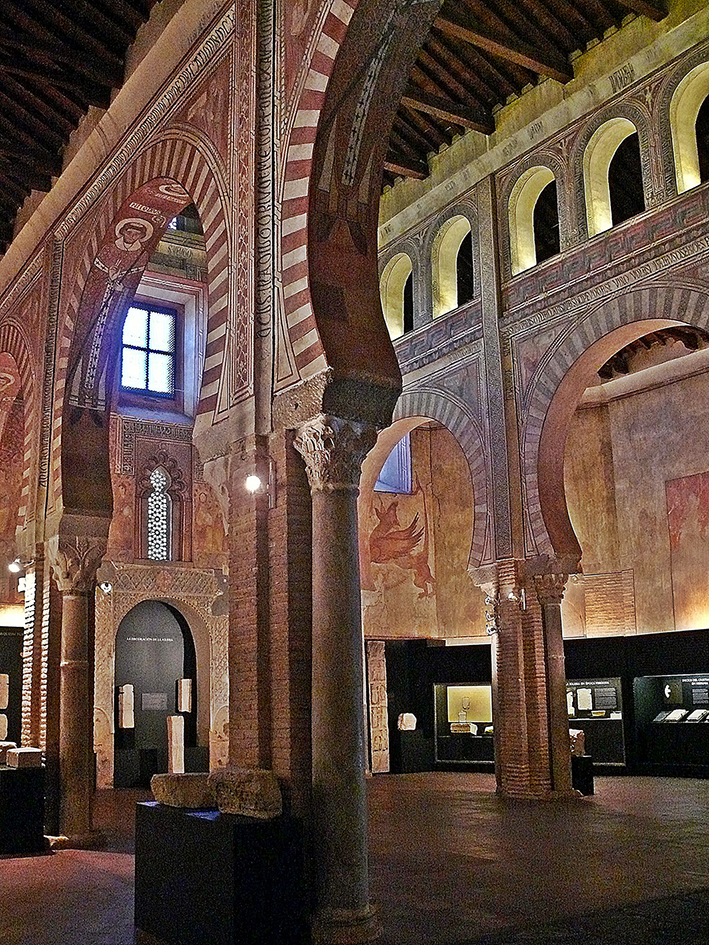|


|
|
|
Coordination :
François CADIOU, PR histoire romaine 
Yann DEJUGNAT, MCF histoire médiévale  
|
The “Iberian Peninsula and Maghreb from Protohistory to the End of the Middle Ages” research area is a continuation of research by the Pierre Paris Centre founded in the early twentieth century at the University of Bordeaux. Rooted in the study of the imperial provinces of Roman times, it has progressively widened its scope in terms of time, space and themes. Diachronically, it now gives precedence to the longue duréee and extends from protohistory to the late Middle Ages. While giving pride of place to the study of ancient and medieval Spain, its domain of research currently extends to new areas and in particular the Maghreb and to new approaches notably taking the path of gender studies and global history.
From the outset, the Iberian Peninsula and Maghreb research area has been characterized by a multidisciplinary approach, bringing together historians, archaeologists, epigraphists, and more recently art historians. Three major themes structure the team’s research:
- Inscriptions, social history and identities:
relying on recognized expertise of this research area in epigraphy, the aim is to extend our knowledge in the domains of onomastics, the analysis of symbolic systems and the construction of identities in Iberian, Celtiberian and Roman societies, by paying particular attention to the question of linguistic and graphical contacts.
this research domain seeks to be multidisciplinary, looking to promote a study of political cultures both diachronically (Antiquity–Middle Ages) and synchronically (comparative analysis of medieval Christian and Muslim states). While paying special attention to the themes of warfare, institutions and justice, new themes are emerging such as “politics and art”, “the written word of the ruling powers” and “rethinking the imperial phenomenon” in the medieval Iberian and North African worlds.
- Territories, societies and globalizations:
structuring of territories, with a particular focus on the management of resources and water, economic exchanges, urban history and architecture. In addition, at a time when the pioneers of global history have drawn attention to the central role of the Iberias in the early European globalization of the sixteenth century, the Iberian Peninsula and Maghreb research area is reflecting on the connectedness of Iberian–Maghreb societies over the longue durée from Protohistory to the Middle Ages, in order to think about their inclusion and their role in the construction of other episodes of globalization.
As the heir to a prestigious research tradition, begun by the pioneers of the history and archaeology of Roman Hispania, the research area intends to promote a reflective approach with special emphasis on the historiographical dimensions in order to better understand the way in which a field of research that is undergoing wholesale renewal was constructed. |
Projets en cours
- Campagnes archéologiques sur le site d’Henchir Hnich (Tunisie). Lieu de trouvaille de la lex Hadriana de agris rudibus", 2019-2022 (Ali Chérif, INP ; Hernán González, UBM ; Yolanda Peña, UNED). Financées par le Ministère Espagnol de la Culture et du Sport et par la Fondation PALARQ

- Fouilles à Baelo (dir. Laetitia Borau)

- Atlas Digital Onomastique la Péninsule Ibérique Antique (ADOPIA) (dir. Jonathan Edmonson et Milagros Navarro Caballero)

- Les cultures politiques dans la péninsule Ibérique et au Maghreb (Ve-début XVIe siècle) - CPIM (coord. Daniel Baloup, Yann Dejugnat et Véronique Lamazou-Duplan,en partenariat avec les universités de Toulouse-Jean Jaurès, de Pau et des Pays de l'Adour et de la Casa de Velázquez, 2017-...)

- Étude et révision des inscriptions paléohispaniques, grecques et latines de l’oppidum d'Ensérune (Hérault) dans le cadre du PCR Ensérune (2021-2024) co-dirigé par Philippe Boissinot (EHESS Toulouse), Rosa Plana, Réjane Roure (ASM UMR 5140) et Coline Ruiz Darasse (Ausonius UMR 5607).
Projets achevés
- Graver dans le marbre : routes et origines des marbres antiques d’Aquitaine et d’Espagne (ROMAE) (dir. Anna Gutierrez, Milagros Navarro Caballero et Rémi Chapoulie ) (en partenariat avec CRP2A)

- Étude des ateliers céramiques du Mas de Moreno (Foz-Calenda, Teruel) : nouvelles techniques, alphabétisation, et latinisation

- La guerre et ses traces. Conflits et sociétés en Hispanie à l'époque de la conquête romaine (IIIe-Ier s. av. J.-C.)
- Enseignement et diffusion du patrimoine archéologique commun. Formation des étudiants en Archéologie et Patrimoine des Universités de Bordeaux 3 et Saragosse
- Justice et fourches patibulaires : lieux d'exécution, d'exposition et d'inhumation des corps des condamnés à mort (Moyen-âge - époque moderne) (dir. Martine Charageat, 2015-2018)
- Inscriptions spécifiques de l'Occident musulman
|